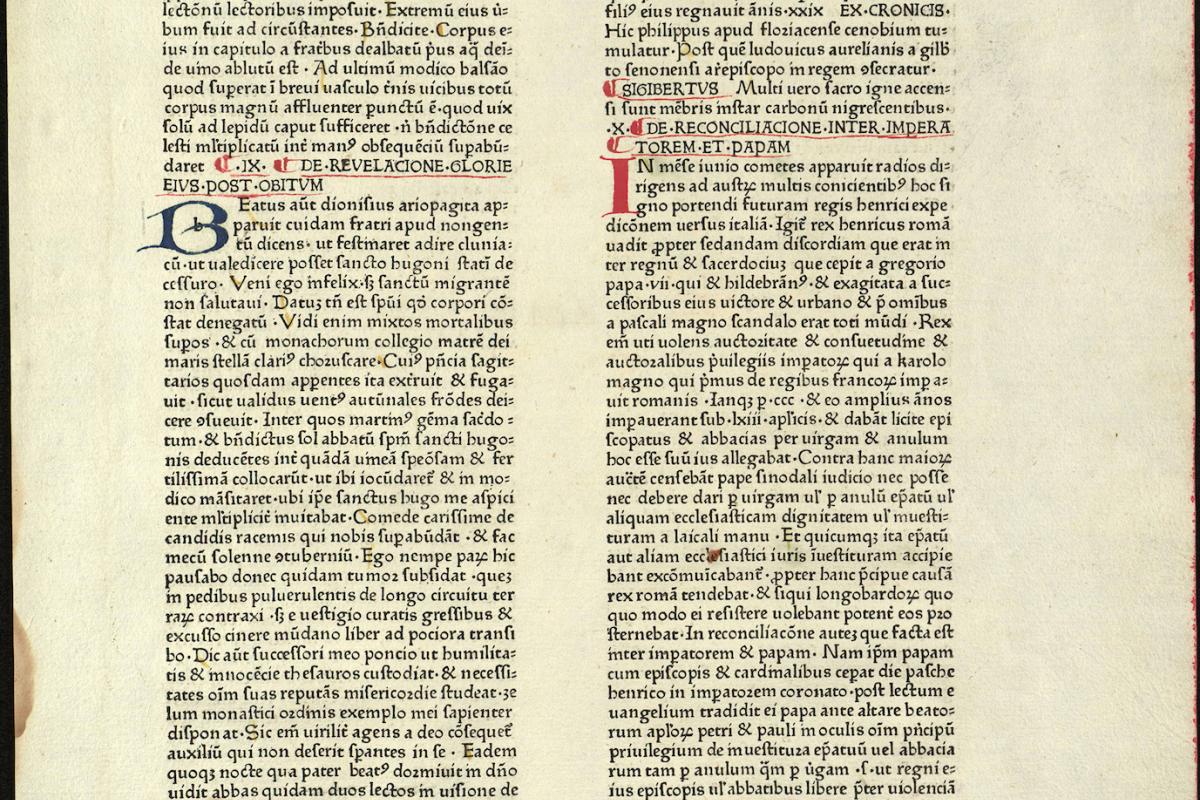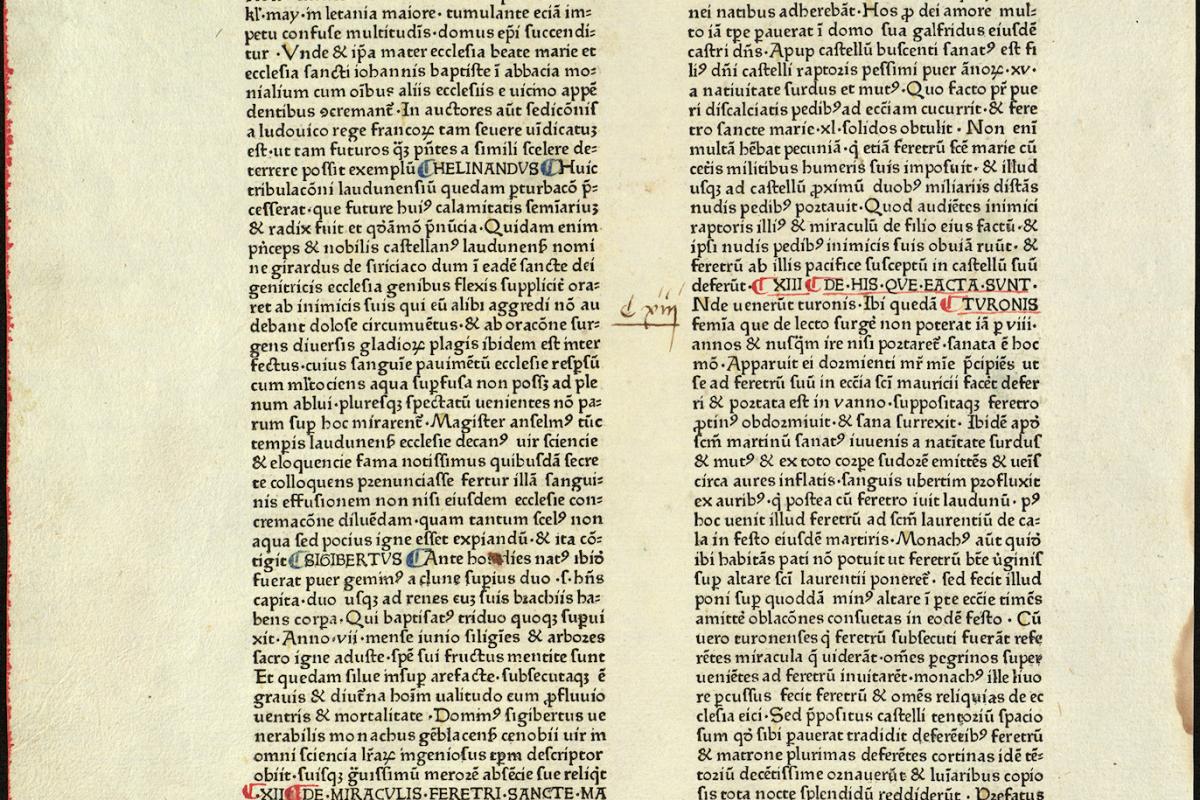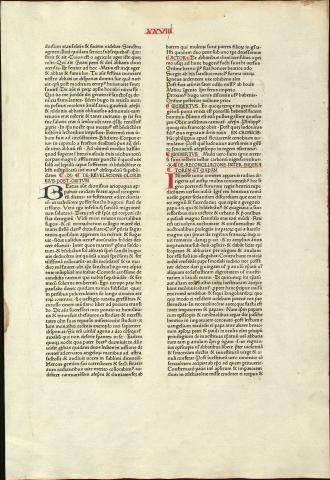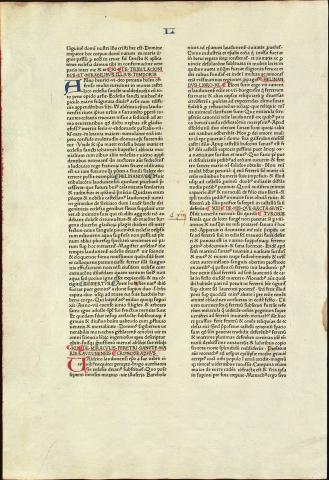Speculum Historiale Leaf
Speculum Historiale Leaf
German (Strasbourg), 1473
Author: Vincent of Beauvais (French scholar and encyclopedist, ca.1190-1264)
Contributor: Printed in Strasbourg by Johann Mentelin, 2nd edition
Language: Latin
Single leaf
ink on paper
height 47 cm
Portland State University Library Special Collections
Mss 20, Rose-Wright Manuscript Collection no. 12
Chris Pickrell, Medieval Portland Capstone Student, Winter 2005
This page from the Speculum Historiale was written by Vincent of Beauvais in the latter 13th century and printed in the fifteenth century. The single page is printed, in black ink, on both sides in double columns containing 62 lines in a thick roman script. Many of the capital letters are touched in yellow ink and there are paragraph rubrics in red as well as red and/or blue. The leaf is made of paper and measures approximately 18" x 12". The numerical heading is "II" (in blue ink) on the top of one side and "XXVIIII" in red on the other. The margins are quite wide. The page is from the second edition of this work, printed in Strasbourg by Johann Mentelin in 1473.
Vincent of Beauvais was a Dominican friar who left the monastic life and eventually became lector and chaplain to the court of the French King Louis the IX. It was under such patronage that he undertook the task of writing three huge encyclopedias which he intended to include the sum of all knowledge from the time of creation to his own present day. The three major works were divided into the Speculum Majus, the Speculum Doctrinale, and the Speculum Historiale. The last, despite its name, is not as much a historical overview as it is a metaphysical commentary on religion, faith, and other things supernatural. It is often regarded as the most personal and introspective of the three works and includes (as do the other two) pieces of poetry and music, possibly written by the author himself. Despite its many omissions and fallacies, all three sections of the Speculum were an influence and inspiration to poets and writers for centuries afterward. It was especially important to many of the Romantic writers, with Lord Byron often citing him as a primary influence.
Suggestions for further reading:
- Gabriel, Astrik L. The Educational ideas of Vincent of Beauvais. Notre Dame, Indiana: University of Notre Dame Press, 1962.
- Weber, Richard Kress. Vincent of Beauvais: A study in medieval historiography. PhD. Thesis, University of Michigan, 1965.




